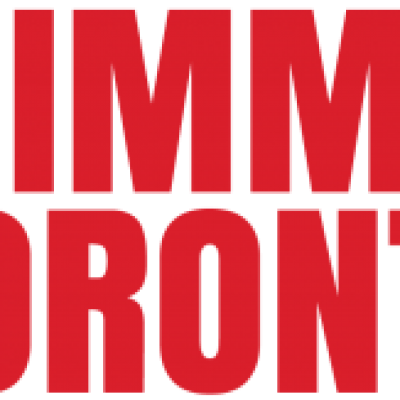Healthcare – A look at the Canadian job market
Body
Health and biosciences sectors in Canada are expected to double in size by 2025 according to the Economic Strategy Tables on Health and Biosciences. A nation is predicted to rank among the top three worldwide hubs if it leverages and promotes breakthrough technologies, attracts and maintains capital, skills, and people, and creates an ecosystem that unleashes the sector's full potential and improves health outcomes. 
As a result, healthcare professionals' specialized fields would see several opportunities for success. Our goal in this post is to help you gain a full understanding of how much your healthcare role covers in Canada and how to make a successful transition to the Canadian workforce.
Identifying in-demand healthcare skills and narrowing your research
When you have chosen the province where you want to work, you need to start looking for individual cities that may offer more opportunities to land a job in your desired role. An excellent resource for this is Canada's Job Bank website.
Prospects page allows you to view more detailed breakdowns by region when you select a particular province. You can also research the job prospects for Registered Nurses in Alberta on the same website.
To obtain a more in-depth analysis, return to the main Occupation Trends page and enter your NOC, region, or city.
Healthcare licensing and certifications you may need for your position
The prerequisites for professional licenses and certifications may vary between provinces and territories. You can start preparing for your employment in Canada by determining whether you would need to obtain a license or certification.
Similarly, a Registered Nurse will be shown on the Job Bank website with the skills and prerequisites needed to work in that sector, including licenses and certificates.
An Alberta Registered Nurse must be certified by the College and Association of Registered Nurses of Alberta in order to be qualified to work in Calgary as a Registered Nurse. Additionally, completion of an accredited registered nursing program at an accredited university, college, or other institution as well as extra academic coursework or experience are typically prerequisites.
Obtaining a Canadian nursing license for international nurses
Here is a summary of the procedures to be completed in order to become a certified nurse in Canada:
- Compare your education with current nursing standards in Canada with an advisory report from the National Nursing Assessment Service. A nursing group and a province must be selected for your application.
- There are six steps in this procedure: establishing an online account, providing identification documents, providing nursing education documents, providing nurse registration documents, providing nursing practice/employment documents, and providing language test results.
- Your advisory report will provide you with information on how to file an application with the regulatory body in your chosen province.
- Contact the nursing association in your province or territory and request an evaluation.
- To become a nurse in Ontario, you can apply through the College of Nurses of Ontario (CNO) and in British Columbia, you can apply through the College of Registered Nurses of British Columbia (CRNBC).
- In order to demonstrate your nursing competency, one or more exams will be required as part of the assessment process. You will also be assessed for your knowledge of nursing laws, college bylaws, practice standards, and guidelines for that particular province or territory, as well as your understanding of nursing-related laws, bylaws, standards, and guidelines.
- Following passing the exam, you must also meet four additional requirements in order to become registered with a Canadian nursing regulatory organization.
- Language proficiency in French or English.
- Having completed the nursing program in the state in which you are registered or eligible to register.
- Immigration and Refugee Protection Act authorization to practice nursing, citizenship, or permanent residency
- There are two forms of documentation that attest to an applicant's moral character and eligibility for practice: a Canadian Criminal Records Synopsis and a Declaration of Registration Requirements.
- Your provincial or territorial nursing college or association will provide you with a certificate of registration.
Understanding salary expectations in Canadian healthcare roles
A second crucial aspect of relevance to newcomers is establishing wage expectations. You can find salary research on a variety of websites, such as Job Bank, Glassdoor, and surveys released by staffing agencies like Hays and Randstad. Your compensation will vary significantly depending on your experience and location.
Depending on your experience level, region, and city, you can filter your occupation to get an accurate idea of your income potential. Comparing data from several sources is a good way to get an accurate estimate.
Depending on their level of expertise, Registered Nurses in Calgary can expect to make, on average, $74,000 to $120,000.
Canadian healthcare jobs: how to find one
Prepare yourself for the Canadian healthcare job market by following these steps:
-
Using online and offline methods
It is also possible to register for industry events or join a recruitment agency that can help you market your resume to potential employers in addition to using the Canada Job Bank website and other online job search portals such as Monster, indeed, SimplyHired, LinkedIn Jobs, CareerBuilder, Workopolis, and others. On websites like Eventbrite, you may find industry events happening in your city or neighborhood.
-
Obtain the necessary credentials or permits
In order to practice your profession, you might need a license or certification. It will boost your resume and improve your job prospects if you obtain a certification in Canada.
-
Make your resume stand out
Your resume is one of your most important job-hunting tools. Maintain a current CV that follows Canadian standards. Be sure to prepare your application if you are looking for a position in the healthcare sector.
-
Networking
Networking plays a crucial role in finding a job in Canada. With LinkedIn, you can build your network. Coffee conversations can also help you become familiar with Canadian culture and business etiquette, as well as the local market.
Conclusion
The ability to work in Canada might be one of the biggest advantages for those who intend to move to Canada as a nurse. Healthcare and social support employment openings just reached a record level, according to a recent poll. There is no better way to move skilled healthcare workers to Canada than through the Provincial Nominee Program.








Comments